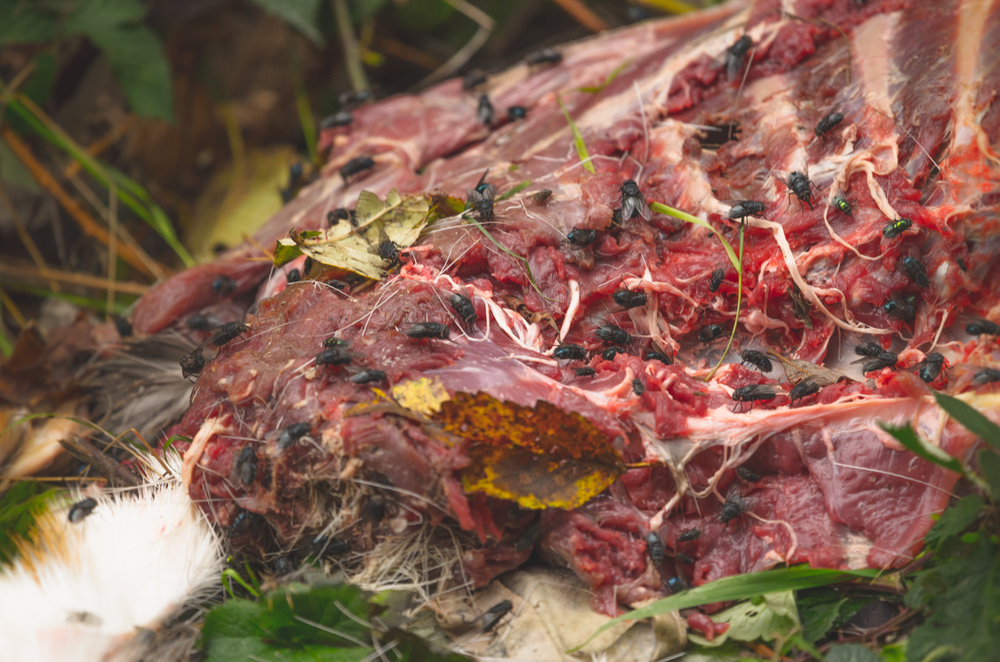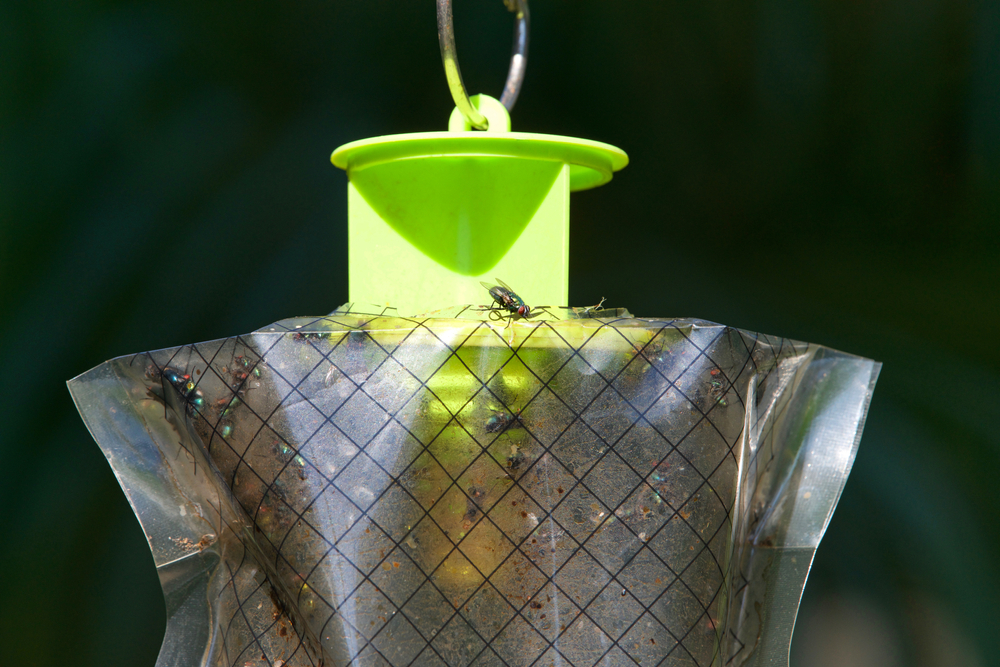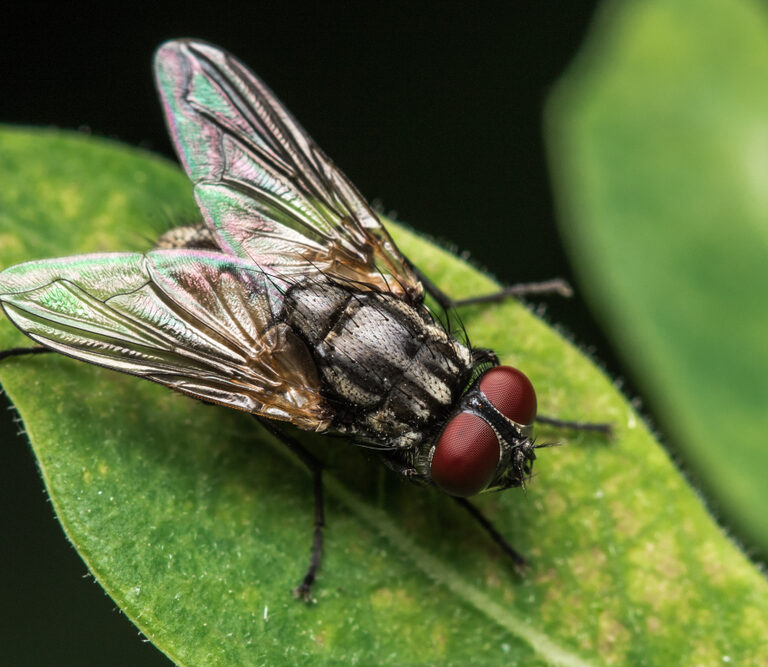We love an American summer—picnics at the park, barbeques in the backyard, and long hot afternoons spent frolicking by the river.
But there’s one thing we don’t love about the carefree summer months: Musca domestica, the common housefly. These pervasive pests are irritating and unsanitary enough to ruin any outdoor event, turning a pleasant afternoon outing into a bothersome affair.
So how does one mitigate the irritation of the common fly?
We’ll cover a variety of preventative and extermination methods in this in-depth how-to guide.
Understanding the Enemy
Before we examine how to free yourself from flies, it’s worth understanding how the horrible little insects survive and multiply.
Found in every country on every continent (including Antarctica), flies can survive and multiply in virtually any climate. Various varieties inhabit the earth, but none are as pervasive as the common housefly. If you’ve got an infestation in your yard or find yourself bombarded by winged insects in the park, chances are you’re dealing with the Musca domestica.
While the housefly is most prevalent during the summer, the pests remain active from spring to fall. Thankfully, numbers dwindle during winter to the point where pest control becomes unnecessary.
Houseflies don’t tend to survive much longer than a month; keeping on top of your cleaning is the most effective way to manage their numbers. But despite the short lifespan, houseflies multiply at an alarming rate, with one adult female laying a hundred eggs at a time. Not only are their larvae, A.K.A. maggots, unsanitary and revolting, but they can spawn into flies in just eight hours when the weather is warm.
As houseflies reproduce so rapidly, it’s not enough to exterminate them and be done with it. You’ll need to adopt a range of additional preventative methods to keep the insects from coming back en masse.
Why You Need to Get Rid of Flies in Your Yard
Buzzing around your face, contaminating your food, and zipping their way inside, the house fly is a never-ending nuisance that must be addressed.
Aside from being incredibly annoying, the fly poses a significant health risk. The insects haul a petri dish of nasty bacteria, spreading diseases such as cholera, diarrhea, dysentery, typhoid, and tuberculosis wherever they go. And should one land on a meaty plate of barbecued food, you’ll ingest a harmful dose of disease with your delicious hot dog.
Getting rid of flies isn’t just important for your mental wellbeing; it’s an essential health and safety undertaking as well.
How to Find Fly Infestations

If you’ve got large swarms of houseflies buzzing around your yard, then you’ve got an infestation on your hands. An infestation is when flies eat, drink, and breed in a specific area, causing their numbers to skyrocket.
Take the following steps to identify the precise location of the infestation.
- Observe where the flies move, land, rest, and assemble. Look for food and water sources that may be attracting them.
- Attempt to identify the specific species of fly. Blowflies, cluster flies, and houseflies respond differently to various methods of pest control.
- If you can’t find the infestation in your yard, it could be on a neighbor’s property. If so, ask them politely to clean up the cause and enact suitable pest control methods. Should they refuse, you could offer to do the job for them or elevate the issue to your municipal health department.
Cleaning Your Yard
Now you understand what’s attracting the flies, you can prevent them from taking up residence in your yard.
Cleanliness is next to godliness. And as the housefly came straight from the pits of hell, maintaining a clean yard is the best way to banish the beasts.
Adopt the following cleaning ideas to stop flies hanging around your yard.
- Clean out any garbage or debris that may be attracting the flies
- Remove any wet organic materials, including manure
- Collect your garbage twice a week and ensure plastic bin bags are firmly tied shut
- Clean out dumpsters and bins and move them as far from the house as possible
- Repair or replace any bin lids that don’t seal
- Remove dying or decayed plant matter from your yard
- Pick up your dog droppings
- Clean out your dog kennel and toss your pooch’s leftover food
- Remove any puddles or stagnant water from the yard (if there’s persistent pooling, work out how to drain it)
- Move your compost as far away from the house as possible
Other Useful Ways to Prevent Flies
Aside from cleaning, there are several other actions you can take to mitigate infestations.
Save the Spiders
Spiders love snagging unsuspecting flies in their webs because the insects make for a nutritious lunch. Avoid clearing away spider webs unless they’re stretching across walkways or otherwise getting in your way.
Plant Wafty Herbs
Flies abhor aromatic herbs like basil, coriander, and mint. Planting these around your outdoor entertainment area, such as the barbeque, can help keep the pests at bay. Fresh herbs also smell lovely and go down a treat in the kitchen.
Mow Your Lawn
Flies tend to lay their larvae in long grass, as moisture provides an ideal setting for maggots to spawn. Mowing your lawn regularly—at least once a week in peak summer—will have a significant impact on their ability to reproduce.
Use Seeds for Birdfeed
Although it’s enjoyable to watch birds snack on fruit in your backyard, rotting citrus is known to attract flies. Switch to birdseed instead so you can feed your feathered friends sans the swarms of winged pests.
How to Get Rid of Flies Outside

Preventative measures will reduce the flies buzzing around your yard, but they won’t eradicate them. And if flies are bugging you outside your property, you’ll need to find ways to expunge them on the spot.
The following tips will help you rid yourself of pesky flies outside.
Light Some Scented Citronella Candles
Although most commonly used to battle mosquitos, citronella is equally effective against flies. The all-natural aromatic oil is made from several lemongrass species and emits a strong scent that sends flies packing (don’t worry; it smells rather nice to us humans). Place a few fragrant candles around your table or barbeque to ward off insects.
Set up a Fan
Like other airborne insects, flies don’t cope well with the wind. Plug in a fan by your outdoor entertainment space, using an extension cord if need be, to blast them away. Set the fan to oscillate over the entire area to create a sweeping gust that’ll force the flies to flee.
Swat Them Away
Squishing flies with a swatter has been a go-to pest control method for decades. While the original flexible plastic fly swatter still works like a charm, a more effective approach is the modern electric swatter. These tennis racquet-like devices not only stop flies dead in their tracks, but they make a satisfying zapping sound as you electrocute them.
Set an Inverted Cone Trap
These cunning cone-shaped traps lure unsuspecting flies to their demise. Although environmentally friendly and non-toxic, the traps emit an unpleasant smell, so it’s best to keep them well away from your entertainment space. This model from Redtop targets egg-laying females to minimize reproduction.
Hang up Some Fly Paper
Technically known as insecticide-impregnated resin strips, flypaper attracts insects with an alluring aroma then traps them in place with a strong adhesive resin. Place a few sticky sheets around areas where flies congregate and watch them fill up over time. This option from Powerhouse Traps comes with 25 adhesive sheets and is suitable for outdoor use.
How to Stop Flies Getting Inside Your Home
If you’ve got a backyard full of flies, it won’t be long until the winged nuisances find their way into your home. Keep the following three tips in mind to prevent flies from getting inside.
Seal off Any Cracks
Older homes may have cracks and holes around the windows and doors, which invite flies to venture inside. Seal these with an appropriate sealant to block off the entryway.
Keep the Doors and Windows Closed
Even leaving the door open for a minute or two is enough to let a bunch of annoying flies inside. Make a habit of closing the doors and windows immediately after each use. If you’re craving a cool summer breeze, install a well-fitted fine-mesh fly screen and keep it closed at all times.
Move Garbage Away From the House
Garbage in close proximity to your abode will make it easy for flies to sneak in. Store your trash in a far-flung corner of the yard to keep the pests a safe distance away.
How to Get Rid of Flies Outside: Final Thoughts
Flies are an omnipresent pest and a perpetual presence during the hotter months. Although you’ll never be able to eradicate them completely, we’ve given you a bunch of handy tips to mitigate their numbers or stop them dead in their tracks.
With fewer flies buzzing around your face and food, you’ll finally be able to enjoy spending time in the great outdoors.
